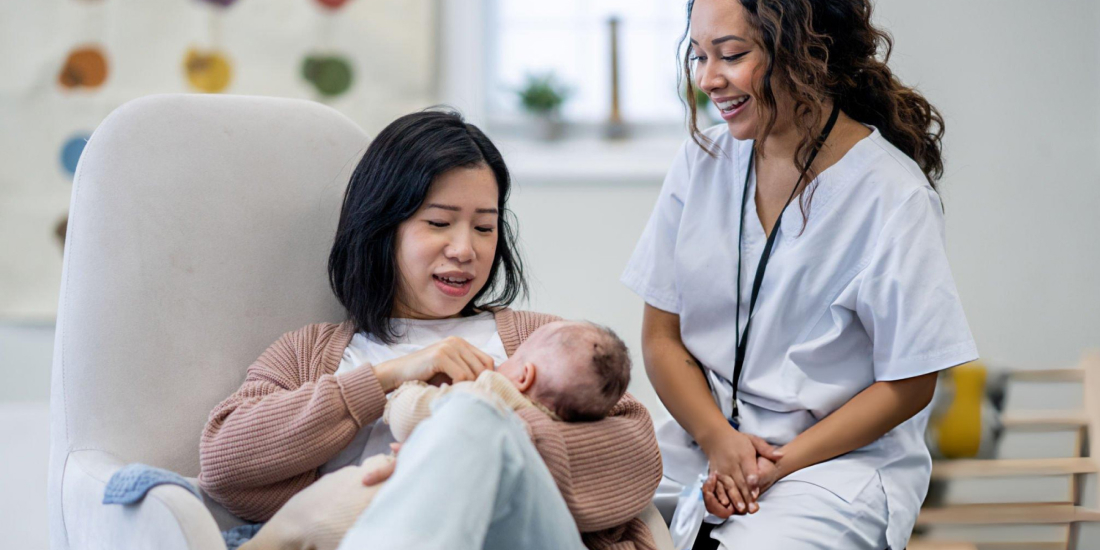

Bringing a new life into the world is an experience filled with joy, anticipation, and a whirlwind of emotions. But for many new mothers, the postpartum phase can be as challenging as it is rewarding. In Malaysia, confinement care has long been embraced as a specialised form of postpartum support. Rooted in ancient traditions and evolving with modern wellness practices, confinement care is designed to assist new mothers in recovering both physically and emotionally from childbirth.
This complete guide will walk you through everything you need to know about confinement care, from its origins and benefits to modern practices and choosing the right type of care for you and your family.
Confinement care is a traditional postpartum practice aimed at helping mothers recover from childbirth by providing them with rest, special foods, and care. Rooted in cultures across Asia, confinement care practices have been passed down through generations, particularly in Malaysia, China, and India. Generally lasting between 28 to 40 days, the confinement period emphasizes rest, proper nutrition, and practices to restore a mother’s body and mind.
The primary goals of confinement care are to:
As more women seek flexibility in their confinement care routines, traditional practices have evolved to incorporate modern confinement practices. Let’s explore the differences:

In Malaysia, traditional confinement practices are heavily influenced by Malay, Chinese, and Indian customs. Each culture has its own beliefs and practices, but they all focus on postpartum recovery through diet, rest, and various wellness practices.
A well-balanced diet is essential to postpartum recovery, and traditional confinement care diets often include specific ingredients believed to help with healing. In Malaysia:
In traditional postpartum care, hot baths and herbal steaming are used to help mothers get relief from muscle tension and improve circulation. Herbal ingredients, such as tong kat ali and ginger, are infused in these baths to soothe the body and provide comfort.
Postpartum massages play a central role in Malaysian confinement care. These massages are believed to help realign the body, reduce swelling, and promote relaxation. Techniques such as binding (or bengkung wrapping) are also common, where the abdomen is wrapped tightly to aid the uterus in returning to its pre-pregnancy state and support the abdomen.
A confinement nanny in Malaysia is often hired to help the mother and the baby during this period. A confinement nanny is trained in postpartum care and is knowledgeable in preparing confinement food, taking care of the baby, and supporting the mother’s emotional well-being.
Confinement care offers several benefits that contribute to both physical healing and emotional well-being, including:

Today, confinement care has evolved to cater to modern lifestyles while still preserving traditional principles. Here’s a look at how contemporary practices integrate with traditional confinement care.
A growing trend in Malaysia, confinement centres are specialised facilities that offer personalised care in a controlled environment. A confinement centre provides professional caregivers, including certified confinement nannies, on-site healthcare, nutritious meals, and other postpartum services. With modern amenities, they allow mothers to recover without the need for intensive family assistance at home.
With increasing awareness about postpartum depression and other mental health challenges, modern confinement practices in Malaysia incorporate counselling and emotional support. This shift helps address the mental well-being of new mothers alongside their physical recovery.
Some families may prefer hiring a confinement nanny for at-home support, while others may opt for a stay at a confinement centre. Either way, modern confinement services offer flexibility, allowing families to customize the care to suit their needs.
The decision between traditional confinement and modern confinement practices depends on several factors, including cultural preferences, personal health needs, and lifestyle. Here’s a quick comparison to help you decide:
| Feature | Traditional Confinement | Modern Confinement |
| Rest & Activity | Strict rest; minimal physical activity | Flexible rest; light physical activity encouraged |
| Diet | Warming, traditional foods; strict dietary rules | A balanced, personalised diet based on nutritional needs |
| Baby Care | Confinement nanny assists with baby care | Personalised baby care with flexibility |
| Mental Health Support | Family support and emotional care | Emphasis on professional emotional support and mental health |
| Flexibility | Rigid; mother remains indoors for 30-44 days | More flexible; allows for socialization and light activities |
| Medical Support | Limited medical consultation | Regular medical check-ups and professional consultations |
| Postpartum Fitness | Not typically emphasized | Postpartum fitness programs offered |
Yes, we know, that deciding between whether to opt for confinement care at home or confinement centres can be a difficult choice. Let’s look at the pros and cons of both:

Opting for confinement care at home is a choice many mothers make to remain in the comfort of their own environment. This option allows mothers to recover while still being close to their families, and often, it is the more traditional route.

A confinement centre is a facility specifically designed to provide specialised care for mothers after childbirth. These centres are equipped with professional staff, including confinement nannies, doctors, nutritionists, and therapists, and offer a range of services that focus on postpartum healing and recovery.
A holistic approach to postpartum recovery considers not just physical healing but also mental and emotional health.
Postpartum care is not just about recovering physically but also about nurturing the mind and spirit. By understanding the principles of confinement care mothers can make informed choices that support their well-being.
TrueCare2U provides specialised confinement care services for new mothers to obtain the best holistic care they deserve during this challenging phase.
With highly skilled and professional service providers on board, you can obtain complete confinement care support from TrueCare2U.
Sources:
Spread the love, follow us on our social media channels